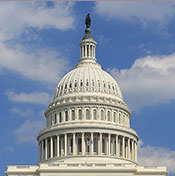Enacted Tax Bill Protects Tuition Waivers
 A massive tax reform package signed into law by President Trump shortly before the holidays drew attention primarily for slashing corporate rates and amending individual filing rules. The legislation, however, was also of significance for the higher education community.
A massive tax reform package signed into law by President Trump shortly before the holidays drew attention primarily for slashing corporate rates and amending individual filing rules. The legislation, however, was also of significance for the higher education community.
The original bill that passed the House of Representatives included language that would have counted graduate student tuition waivers as taxable income. This proposal drew significant protests and press criticism and was ultimately removed by House and Senate negotiators. The AAG was actively involved in opposing the provision and keeping our student members and departmental leaders informed, and we are pleased with the outcome.
Separately, the new law will apply a new excise tax of 1.4 percent on investment income for certain private colleges. Institutions with over 500 students and holding assets of $500,000+ per student will be affected. It is estimated that this new tax will affect approximately 35 institutions including Harvard, Yale, Princeton, and Stanford and will generate close to $2 billion in revenue over ten years. The House had proposed taxing additional colleges and universities, but Senate negotiators argued for the more narrow language.
Finally, it will bear watching how much of an impact the new law has on financial support for public institutions in high-tax states. The legislation caps personal deductions of state and local taxes at $10,000, which could apply pressure on certain states to lower taxes. This, in turn, could force these states to cut budgets, including for public higher-ed institutions.


